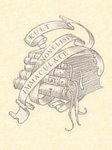While watching the special features for "Harry Potter and the Order of the Phoenix" yesterday one of the threads they followed was how JK Rowling (super writer complete with cape) employed a wonderful device with her characterization. What impresses me is that she used the same device with a huge number of important characters in her books and still kept it fresh.
The device is: No one is as they seem.
Lupine turns out to be a werewolf. James Potter was an ass. Sirius Black is not only a loving godfather rather than a mass murderer, it turns out that's he's part of a notoriously nasty family. Professor Moody in book four turns out to be a disguised bad guy (and we liked him so much!) The list is huge. Even Voldemort isn't what he seems to be. In fact with each book Voldy has bigger and bigger reveals that rewrite what we know or what we think we know about him. Even Harry Potter himself goes through transformations, the biggest at the end. My favorite is Snape, because I have this thing for anti-heroes. Another beautiful reveal came with Draco Malfoy. Say what you like about Rowling's flaws--with this device, she's a genius. Bravo.
It goes to show you that just because it's a mechanical device that anyone can use, that doesn't mean it's a cheat or cheap. None of the tools for the writing craft are cheats unless you mishandle them. Even writing tools that many consider bad, like 'it was all just a dream' are skillfully employed in hundreds, probably thousands of stories without going wrong. If you handle a tool in a way that's meant to bring enjoyment to the reader by deepening a world and making it unexpected and exciting, any tool, no matter how transparent, can be made to work wonders. If, however, you take a hammer and smash on the screw head because you can't seem to tighten it down to the wood and you're too lazy to pull it back out and drill a pilot hole, you're no longer employing craft. You're employing brute force, and I doubt anyone will want to buy your creation if you build it that way.
Lots of people employ writing devices without being consciously aware of them. If their subconscious is particularly clever, they might stumble on a reveal while writing the first draft and dance a little happy writer joy dance as their novel opens up to new possibilities. For the rest of us, writing devices are things we employ consciously, and usually on a second draft while we're going through and trying to figure out how to fix up the drab little house we've built. So if you've taken a look at this and have decided that you want to employ a character reveal or plot twist or an action causes the opposite of the expected effect, don't be in a big rush to start a new project. Take a look at what's collecting dust in your drawer first. It may be collecting dust because you haven't gotten out your tools to work on the raw material. Bring out the shovels, grab that router, and don't forget your level. Writing is work, and your overworked, underpaid creativity can't do it all with stone knives and bear skins.






2 comments:
This is an awesome observation. And dead on. Goes hand in hand with the ending the scene opposite the emotion it started, doesn't it?
We should collect writing tools for INK and post them someplace permanent, maybe with the faq or something. It's hard to keep all this stuff in mind while writing (and it would be insane to try) but it would be great to have a list to peruse while in revision hell.
Post a Comment